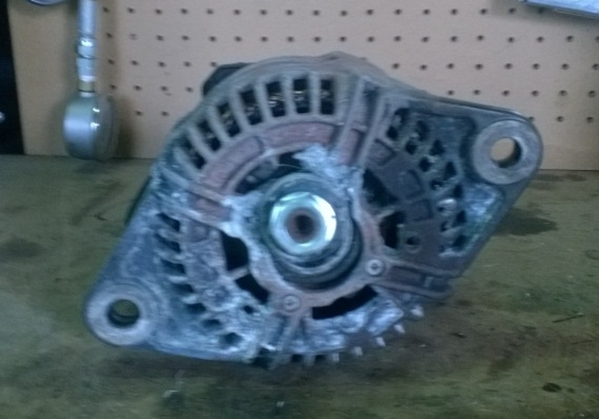Alternator bearing collapse caused small fire
A member has reported an incident on a workboat used in the offshore wind farm industry, in which there was a serious failure of an alternator bearing, leading to a small engine room fire. The vessel crew noticed a sound change from the engines and a reduction in revs (dropped by about 100 rpm) followed immediately by the fire alarm. The crew shut the fire flaps, and the fuel and ventilation shut off using the emergency stops. The engine room was checked, and smoke and small flames or glowing were observed from the alternator. The fire was extinguished, the safety of crew, passengers and vessel was confirmed, and the vessel returned to port on one engine.

Our member’s investigation noted the following:
- The crew were trained to respond to a fire alarm in a certain way and did so in a swift and professional manner;
- The problem was found to have been caused by a bearing collapse in one of the alternators.
Our member took the following actions:
- All alternators should be checked regularly for signs of damage which may manifest itself as ‘Black fluff’ in the windings;
- When the engines are shut down the alternators should be checked for overheating.
Members may wish to refer to the following similar incidents (key words: bearing):
- ROV winch failure (winch bearing)
- IMCA SF 10/14 – All incidents on engine room fires.
Safety Event
Published: 8 September 2014
Download: IMCA SF 15/14
IMCA Safety Flashes
Submit a Report
IMCA Safety Flashes summarise key safety matters and incidents, allowing lessons to be more easily learnt for the benefit of all. The effectiveness of the IMCA Safety Flash system depends on Members sharing information and so avoiding repeat incidents. Please consider adding safetyreports@imca-int.com to your internal distribution list for safety alerts or manually submitting information on incidents you consider may be relevant. All information is anonymised or sanitised, as appropriate.
IMCA’s store terms and conditions (https://www.imca-int.com/legal-notices/terms/) apply to all downloads from IMCA’s website, including this document.
IMCA makes every effort to ensure the accuracy and reliability of the data contained in the documents it publishes, but IMCA shall not be liable for any guidance and/or recommendation and/or statement herein contained. The information contained in this document does not fulfil or replace any individual’s or Member's legal, regulatory or other duties or obligations in respect of their operations. Individuals and Members remain solely responsible for the safe, lawful and proper conduct of their operations.
